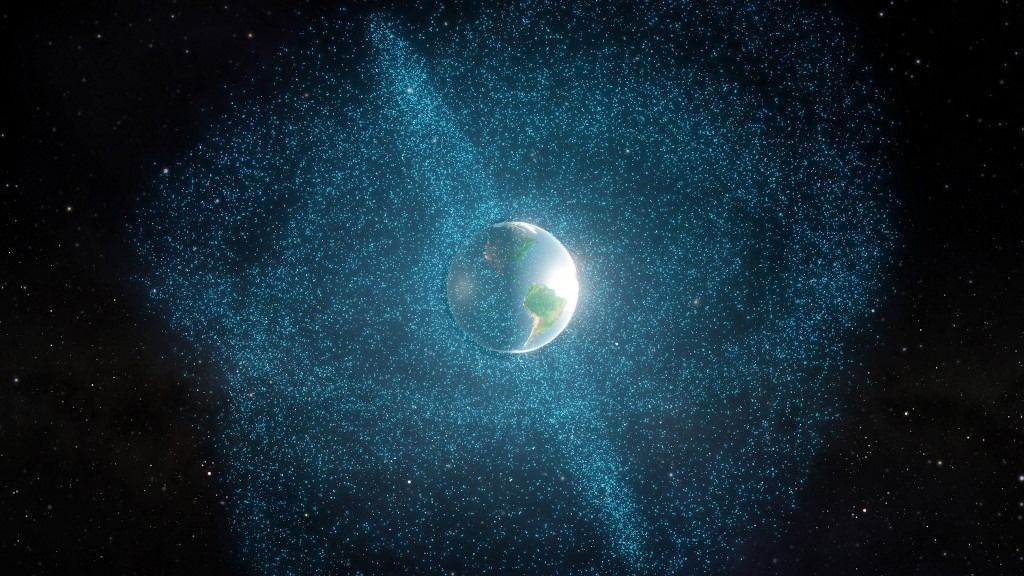We are constantly sending new and improved space objects into space, whether it’s telescopes or satellites for various purposes. However, there is a serious price to pay for this, which we will soon have to face; a catastrophic amount of space debris has accumulated around our planet, with potentially devastating consequences. What is the Kessler Syndrome and why could it bring an end to the internet and many other advancements of civilization?
Space exploration is one of the most exciting adventures of humanity, which has been ongoing for over half a century. The discovery of space has brought new knowledge and technological breakthroughs, but it has also presented us with serious challenges. One such major problem to solve is the Kessler Syndrome, which paints an extremely worrying scenario for modern society, as it could completely reshape our lives and even send us back to the Stone Age. The Kessler Syndrome could bring about the end of the internet and the use of mobile phones, leading to the collapse of civilization.
What is the Kessler Syndrome that could cause the internet to collapse?
The idea of the Kessler Syndrome was first formulated in 1978 by two NASA researchers, Donald Kessler and Burton Cour-Palais.
The essence of the phenomenon is that if humanity continues to send satellites and research tools into space at the current rate, the Earth’s orbit will become overcrowded, increasing the chances of space debris colliding with other objects.
The debris orbiting in space, such as spent rockets, defunct satellites, and other remnants, already increases the risk of collisions, and such collisions create more debris, setting off a chain reaction. This process could ultimately lead to the creation of the so-called “collision cascade,” which would make it impossible to launch new satellites and space objects.
Have we reached a point of no return?
According to Kessler, we will eventually reach a critical mass where collisions will occur even without the launch of new space objects. Some scientists believe that this terrifying scenario has already come to pass; John L. Crassidis, professor at the University at Buffalo and space debris expert, believes that the Kessler Syndrome is inevitable: “If the probability of collision is such that we can no longer send satellites into orbit, then we are in big trouble.”
Currently, there are over 10,000 satellites orbiting the Earth, along with around 100 trillion pieces of debris from defunct space objects, which could cause serious problems.
While some of this debris will eventually enter the Earth’s atmosphere and burn up, much of it remains a potential threat.
The dramatic consequences of the Kessler Syndrome
If the Kessler Syndrome occurs, it could cause serious disruptions in many areas of our lives.
Due to the chain reaction caused by space debris, satellite operations could cease, significantly affecting the internet, television, phone communication, GPS, and weather systems.
This would pose a significant disruption to the modern economy and daily life.
The collapse of GPS systems, for example, would have a huge impact on transportation and logistics, while the loss of meteorological satellites would endanger weather forecasting, causing apocalyptic damage in sectors such as agriculture and fishing. Furthermore, the malfunction of military and reconnaissance satellites would pose security risks.
Possible solutions
To avoid the Kessler Syndrome, scientists and players in the space industry are considering numerous solutions. Amrith Mariappan and John L. Crassidis emphasize in their 2023 study that recycling space debris may be a sustainable long-term strategy. Deorbiting space objects, redirecting them back into the Earth’s atmosphere, is also an option, although it may pose environmental problems, such as damaging the ozone layer.
The goal of the European Space Agency (ESA) is to become “space debris-neutral” by 2030, not increasing the amount of debris orbiting space. Additionally, ESA has set a goal to recycle space objects by 2050.




